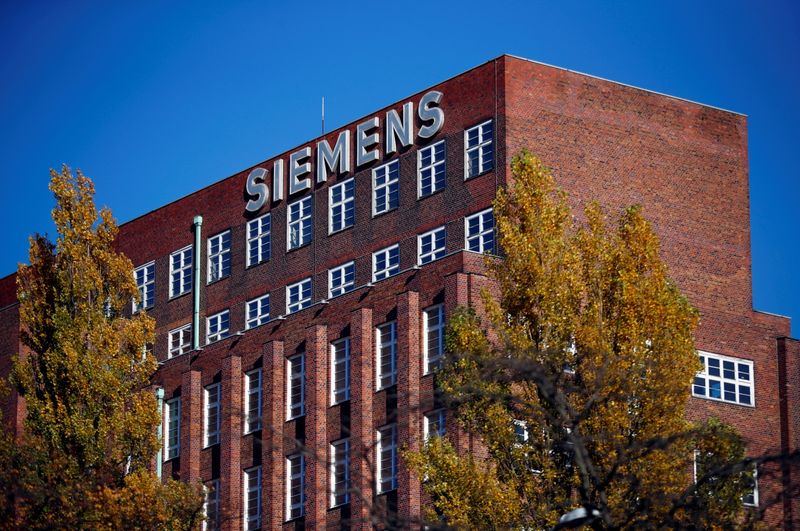By John Revill
ZURICH (Reuters) - German engineering group Siemens (DE:SIEGn) on Thursday reported better-than-expected profit at its industrial business in the final set of results overseen by long-standing Chief Executive Joe Kaeser.
The trains to factory software-maker said it expected market conditions to improve next year as the global economy made a cautious recovery from the coronavirus pandemic.
Although an improvement, the recovery in company and government spending on machinery and systems will lag behind the recovery in gross domestic product, the company said.
"While we anticipate that important customer industries for Siemens will continue to face challenges related to the pandemic and industry-specific structural changes ... we expect improved conditions particularly for our high-margin shortcycle businesses in the second half of fiscal 2021," the Munich company said.
For the three months to the end of September, Siemens posted adjusted earnings before interest, tax and amortisation (EBITA) of 2.64 billion euros ($3.11 billion), beating analyst forecasts for 1.98 billion euros in a company-gathered poll.
Group revenue of 15.31 billion euros missed forecasts for 15.50 billion euros, although orders of 15.56 billion euros were better than expected. Both figures were lower than a year earlier as demand was hit by the coronavirus pandemic.
Kaeser described the performance as a "strong finish to a remarkable year," while in its outlook Siemens said it expected a moderate increase in net income in 2021 from the 4.2 billion euros posted in 2020 as the world economy recovers.
The results were the final earnings under Kaeser, who has spent 40 years at Siemens and has reshaped the company during his seven year stint as CEO.
Although he will remain CEO until the company's shareholder meeting in Feb. 2021, Kaeser's successor - deputy CEO Roland Busch - took over the operational running of the business in October.
During Kaeser's tenure Siemens has transformed into a more technology-focused concern, moving away from a sprawling light bulb to gas turbine conglomerate to focus on smart buildings and factory automation as well as its mobility division, which makes trains and rail signaling.

($1 = 0.8498 euros)